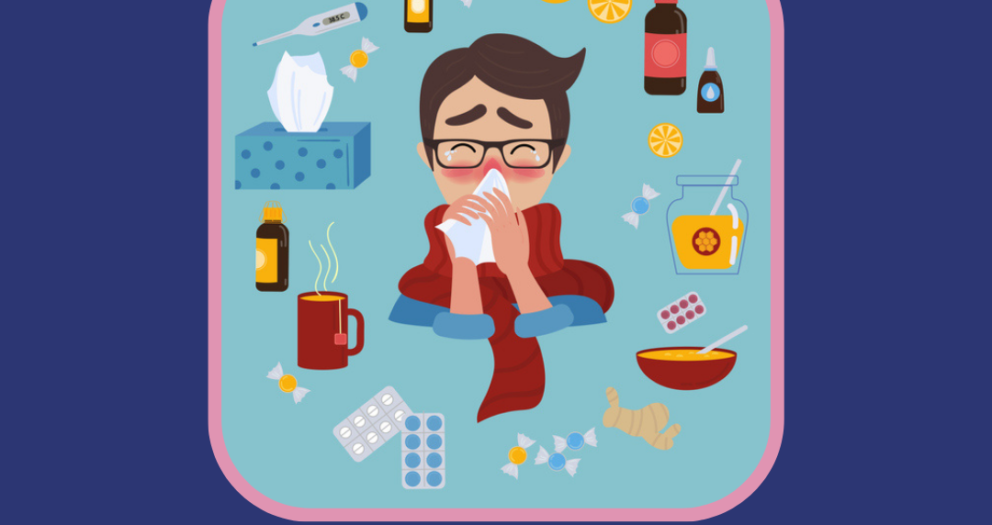What Is The Best Way To Treat a Cold or Flu Cough?
A cough is one of the most common symptoms of colds and the flu. While it serves as a natural reflex to clear the airways of mucus, bacteria, or irritants, it can also be distressing, disruptive, and uncomfortable. For many, a persistent cough can last long after other cold or flu symptoms subside, leading to sleepless nights and fatigue. Understanding the best way to treat a cold or flu cough is essential for relieving symptoms, improving comfort, and speeding up recovery. This guide will explore various treatments, remedies, and lifestyle changes to manage a cold or flu cough effectively.
Understanding Cold and Flu Coughs
Before diving into treatments, it's important to understand the nature of coughs associated with the cold and flu:1. Cold Cough vs. Flu Cough
- Cold Cough: A cold is caused by a viral infection that affects the upper respiratory system, leading to symptoms like sneezing, runny nose, and mild cough. Cold coughs are often productive—meaning they bring up mucus, helping to clear the respiratory tract. They are typically less severe than flu coughs and resolve within a week or two.
- Flu Cough: Influenza, or the flu, is a more serious viral infection affecting both the upper and lower respiratory tract. The flu often causes a dry cough, which can be more severe, accompanied by symptoms like fever, body aches, and fatigue. A flu cough can linger for weeks after other symptoms have disappeared.
2. Types of Coughs
- Dry Cough: Characterized by irritation in the throat and chest without producing mucus. A dry cough is more common with the flu and can be particularly bothersome at night.
- Wet Cough: Also called a productive cough, it brings up mucus or phlegm from the lungs. Wet coughs are usually associated with colds or respiratory infections.
Best Ways to Treat a Cold or Flu Cough
When managing a cold or flu cough, it is crucial to tailor the treatment to the type of cough you're experiencing and the underlying cause of the cough. Below are some of the most effective ways to treat a cough due to a cold or flu.1. Over-the-counter (OTC) Medications
OTC medications can relieve coughs associated with colds and the flu, but choosing the right one depends on your cough type.- Cough Suppressants (Antitussives): These medications work by suppressing the cough reflex, which can be helpful for a dry, persistent cough. Dextromethorphan is one of the most common ingredients in cough suppressants. However, they should only be used for non-productive, dry coughs, as suppressing a productive cough can prevent the removal of mucus from the airways.
- Expectorants: For wet or productive coughs, expectorants like guaifenesin can help thin mucus, making it easier to cough up. This helps clear the airways and can reduce chest congestion.
- Decongestants: If nasal congestion is contributing to your cough, decongestants such as pseudoephedrine or phenylephrine can help reduce nasal and sinus swelling, improving breathing and reducing postnasal drip that can lead to coughing.
- Pain Relievers: For flu-related symptoms like body aches or fever that often accompany a flu cough, pain relievers like acetaminophen or ibuprofen can help reduce discomfort.
2. Home Remedies for Cough Relief
In addition to medications, many people find relief from a cold or flu cough with natural and home remedies. These can be particularly helpful if you prefer a non-pharmaceutical approach or if you want to complement OTC medications.- Honey: Honey has natural soothing properties and is as effective, if not more, than some OTC cough medications in reducing the frequency and severity of coughs. Simply take a spoonful of honey or mix it into warm tea or water to soothe your throat.
- Ginger Tea: Ginger is a powerful anti-inflammatory agent that can help relax the muscles in the airways, reducing coughing. Sipping on ginger tea can also provide warmth and comfort to an irritated throat.
- Steam Inhalation: Inhaling steam can help loosen mucus and soothe dry, irritated airways. You can take a hot shower or boil water, lean over the steam with a towel over your head, and inhale deeply for 10-15 minutes.
- Saltwater Gargle: Gargling with salt water helps reduce throat irritation and loosens mucus. Mix a teaspoon of salt in a glass of warm water and gargle for 30 seconds before spitting it out.
- Humidifiers: Adding moisture to the air can help soothe dry, irritated airways and reduce coughing, especially in the winter when indoor air is dry. Using a humidifier at night can improve sleep by preventing nighttime coughing.
3. Hydration
Staying well-hydrated is one of the simplest and most effective ways to manage a cold or flu cough. Drinking plenty of fluids helps thin mucus, making it easier to expel and reducing chest congestion. Water, herbal teas, broths, and clear soups are excellent options for staying hydrated. Avoid caffeine and alcohol, as they can contribute to dehydration and make symptoms worse.4. Rest and Recovery
Your body needs energy to fight off the virus that causes colds and flu. Resting as much as possible will help your immune system function effectively and allow you to recover faster. Overexerting yourself can worsen symptoms and prolong your illness.- Sleep Position: Sleeping with your head elevated can help reduce postnasal drip and make breathing easier, which may prevent coughing during the night.
5. Herbal Supplements and Natural Remedies
Certain herbal remedies and supplements may help alleviate cold or flu coughs, although scientific evidence for their effectiveness is mixed. Still, many people find them helpful, especially when used alongside other treatments.- Echinacea: Some studies suggest that echinacea may reduce the duration of cold symptoms, including coughs, by boosting the immune system.
- Licorice Root: Known for its soothing properties, licorice root can be brewed into tea to ease coughing and reduce throat irritation.
- Marshmallow Root: Marshmallow root is often used in herbal medicine to reduce inflammation and soothe irritated mucous membranes, potentially relieving coughs.
6. Addressing Underlying Causes
Sometimes a cough associated with the cold or flu can be exacerbated by other factors, such as:- Allergies or Asthma: If you have underlying allergies or asthma, they can worsen during a cold or flu, leading to more severe coughing. Managing these conditions with antihistamines or asthma medications, as advised by your doctor, can help reduce cough severity.
- Postnasal Drip: This condition occurs when excess mucus drips down the back of the throat, causing irritation and coughing. In this case, treating nasal congestion with decongestants, nasal sprays, or saline rinses can help reduce coughing caused by postnasal drip.
7. When to Seek Medical Attention
While most coughs related to a cold or the flu will resolve on their own with time, there are instances where medical attention may be necessary. Seek medical care if you experience:- Cough lasting longer than three weeks
- High fever (especially with a flu cough)
- Shortness of breath or difficulty breathing
- Blood in your phlegm
- Chest pain
- A worsening of symptoms or if new symptoms develop (such as ear pain or severe headaches)
8. Prevention of Cold and Flu Coughs
Preventing a cold or flu is always better than treating it. To reduce your risk of getting sick and developing a cough:- Get Vaccinated: Annual flu vaccines significantly reduce the risk of getting the flu or experiencing severe flu symptoms, including cough.
- Good Hygiene: Wash your hands regularly, avoid touching your face, and cover your mouth and nose when sneezing or coughing to prevent the spread of viruses.
- Strengthen Your Immune System: A healthy diet, regular exercise, adequate sleep, and stress management can strengthen your immune system, making it more resilient to infections.

